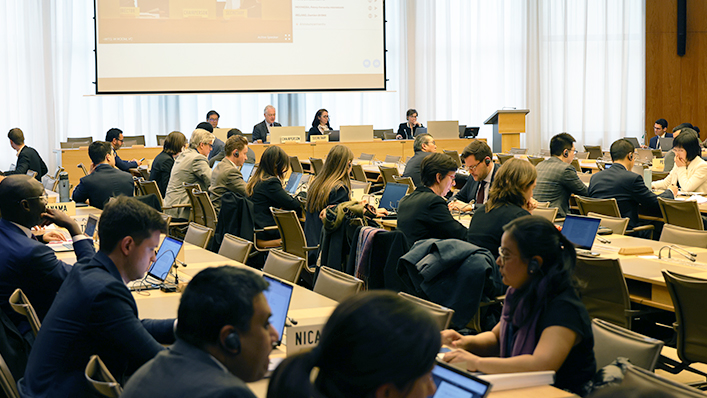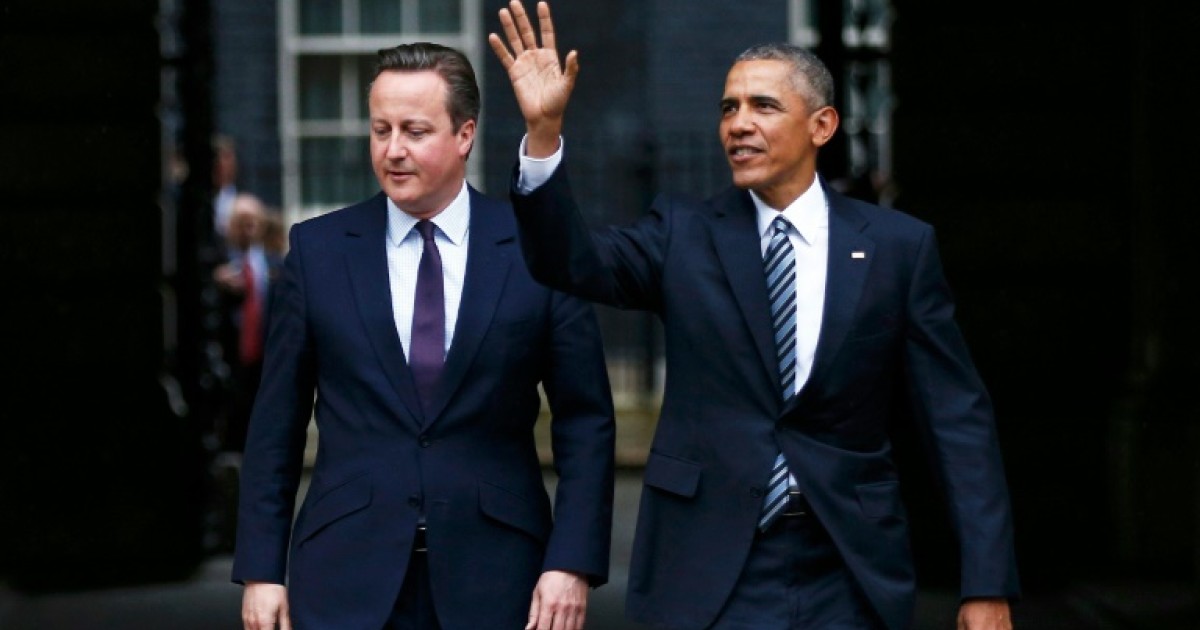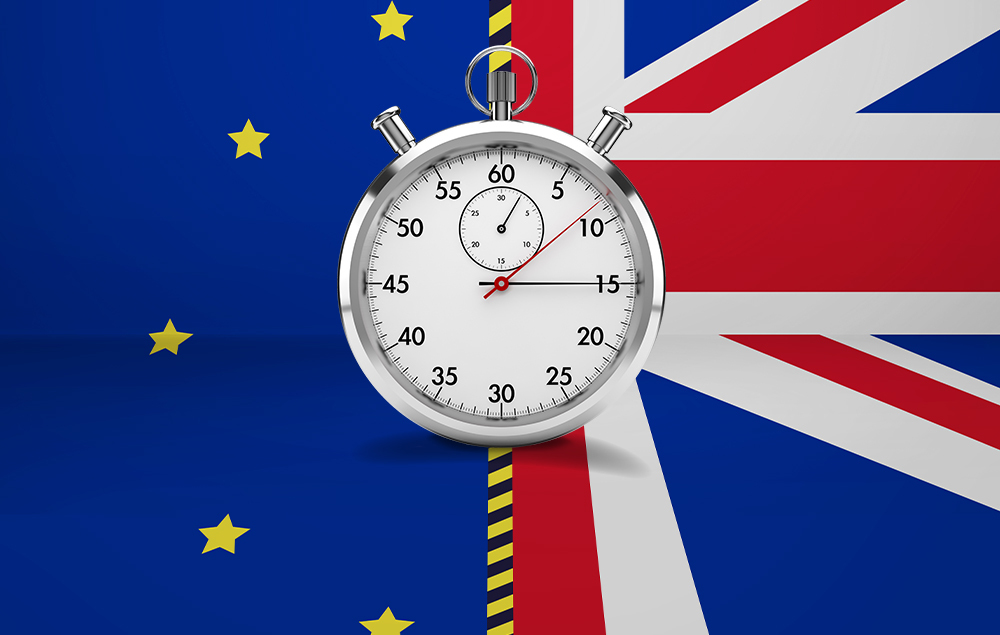China presented proposal The Committee was intended to deepen multilateral discussions on the trade aspects and effects of environmental measures with broad implications. It noted that trade policies were increasingly being used to achieve environmental objectives and that the WTO was an important forum for trade policy deliberations. It proposed using the Committee as a platform and suggested that Members start with discussions on the European Union's Carbon Border Adjustment Mechanism (CBAM) at the June CTE meeting. The EU said it would study the proposal, noting that it had described the CBAM in detail and responded to Members' questions in recent years and intended to hold a dedicated briefing in the coming months.
Colombia presented a paper on “principles and parameters that should guide and support policies and measures related to trade and the environment.” It said that developing countries should be more involved in the work of the Committee and proposed that Members consider principles such as international cooperation, common but differentiated responsibilities between developed and developing countries, and the non-discrimination principle. Colombia invited Members to a special informal session to discuss these principles and establish an action plan.
The European Union has drawn the attention of its Members to its February proposal submitted to the WTO General Council, entitled “Strengthening the WTO's deliberative function to respond to global trade policy challenges”, which included a suggestion to deepen discussions in the ETC on environmental trade measures. The EU has highlighted three priority areas: i) trade policy and state intervention in favour of industrial sectors; ii) trade and global environmental challenges; and iii) trade and inclusion. The EU said it intended to engage with Members on how best to continue discussions and strengthen deliberations in the Committee in light of its submission.
Several other Members also expressed their suggestions and views on how to improve the work of the Committee and enhance WTO efforts. Many Members supported greater transparency and dialogue on national actions on climate and other environmental objectives. Several Members called for closer coordination among WTO bodies on environmental issues. Members discussed the application of the principle of common but differentiated responsibilities according to the level of development of economies.
Member presentations
India presented a paper on the increasing use of environmental measures as non-tariff protectionist measures. It said it was concerned about four areas in particular: carbon border measures; environment-based management of maximum residue limits (MRLs) in agriculture; measures related to deforestation; and import restrictions based on the green content of commodities.
Paraguay informed Members about its analysis of Members’ notifications on agricultural subsidies for environmental protection programmes, expressing concern about possible “greenwashing” of official support. It proposed that discussions on the increased environmental effectiveness of these policies be held in the CCE and that Members use questionnaires to provide more information on their environmental subsidies in agriculture.
Several Members provided information on environmental measures currently under national deliberation. The European Union provided information on the European Commission's proposal for a packaging regulation aimed at reducing packaging waste. It also provided an update on other features of the European Green Deal, noting that the MACF would be subject to the EU's internal legislative process, which will be finalised in May 2023, and that the EU Deforestation Regulation would enter into force in May or June 2023.
The UK provided an update on its due diligence legislation, which requires companies operating in the UK to ensure that supply chains do not contribute to deforestation. It also said it was preparing to start consultations this spring on possible options, including a carbon border adjustment mechanism, to mitigate “carbon leakage” as economies make different commitments in terms of carbon emissions reductions. Delegations were invited to actively participate.
Updated information on initiatives
New Zealand provided an update on behalf of participants in the negotiations for the Agreement on Climate Change, Trade and Sustainability (ACCTS). It said the current round of negotiations took place between 16 February and 26 March. It highlighted the chapter on best practice guidelines for voluntary eco-labelling and noted that this was a new addition to free trade agreements. Members are working to conclude the negotiations this year.
Kenya briefed the Committee on the launch of the Trade Ministers’ Climate Coalition on 19 January, on the sidelines of the World Economic Forum in Davos. It noted that the coalition brought together 56 ministers from various regions and levels of development to coordinate efforts to combat climate change through trade policy. Kenya invited more members to join the coalition.
Deputy Director-General Jean-Marie Paugam summarized the event entitled “Business Forum on Decarbonization Standards”, held on 9 March at the WTO.
Biological Diversity
The Committee heard statements from the Secretariat of the Convention on Biological Diversity, the United Kingdom, the European Union and China on the trade-related outcomes of the United Nations Conference on Biological Diversity (COP 15), in particular on the importance of the Global Biodiversity Framework from Kunming to Montreal.
The United Nations Environment Programme (UNEP) presented a summary of the event held jointly with the WTO on 14 March, entitled “Nature-friendly trade for sustainable development: How can trade-related policies and measures support the implementation of the Global Biodiversity Framework from Kunming to Montreal?” The discussions highlighted that all objectives of the new Framework could be supported by trade policies and that the WTO should take a holistic and comprehensive approach to biodiversity. At the multilateral level, several ongoing trade policy debates offer opportunities to enhance cooperation and synergies between the global biodiversity, trade and sustainable development agendas, including at the level of the CCE and environmental initiatives.
Members also received a briefing from the United Nations Division for Ocean Affairs and the Law of the Sea (UNDOALOS) on the recently concluded High Seas Protection Treaty.
The WTO Secretariat presented its latest relationship annual in the Environmental database (EDB)focusing specifically on biodiversity. Members welcomed the report and made suggestions to improve the BDE and make it even more useful for members.
Election of the President
At the end of the meeting, members elected Ambassador José Valencia (Ecuador) as the new Chair of the CCE. Mr. Ambassador Valencia replaces Mr. Ambassador Simon Manley (United Kingdom) as Chair of the CCE.
Next meeting.
The next Committee meeting will be held during the week of June 12.
Share, distribute

“Professional food trailblazer. Devoted communicator. Friendly writer. Avid problem solver. Tv aficionado. Lifelong social media fanatic.”







